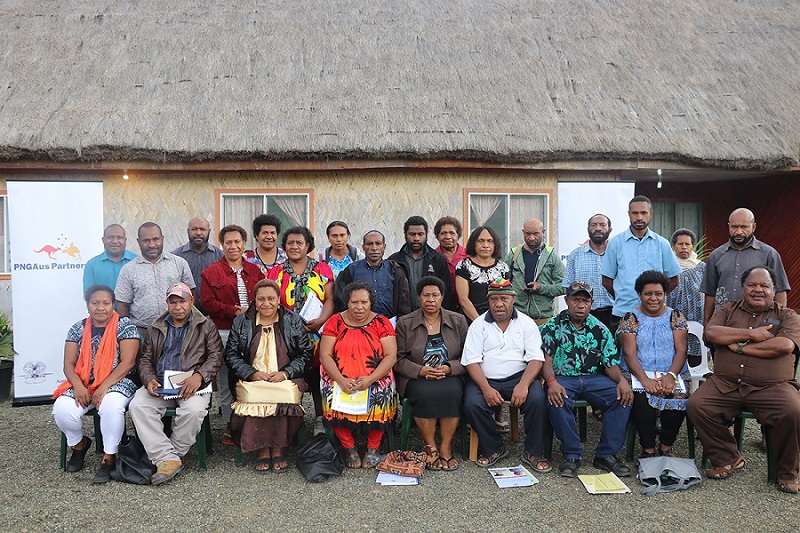Emmanuel Ginis has dedicated the last eight years of his career to improving conditions and opportunities for women in the country’s biggest employer: the Government of Papua New Guinea.
“PNG has eight going on 10 million people – half are women and girls,” he says.
“If they can’t get in to a position to use their brains, hands and feet, then that is a huge loss for PNG’s development.”
Emmanuel leads the government’s push for greater equality for all Papua New Guineans as the Gender Equity and Social Inclusion Manager at the Department of Personnel Management.
An important part of his role is to make a pathway for more women in the public service to step into leadership positions, which can bring benefits within the organisation and to the broader community.
“I would like to see an equal number of men and women participating in employment,” he says.
“It’s a bigger issue where more men are holding decision-making and management roles in the public service.
“Employing more women means we would be putting money in the pay packets of families and households.”
There are significant benefits to Papua New Guinea when women are supported to participate in the economy.
A 2018 study estimated women’s equal participation would increase PNG’s gross domestic product – the total value of goods produced and services provided in a year – by nearly 14 per cent.
Emmanuel’s passion for equality goes back to 2011 when he contributed to the development of the Gender Equity and Social Inclusion Policy, which now informs expectations on government agencies and public servants throughout the country.
Today, he travels to the provinces and districts with support from the PNG-Australia Partnership to communicate the principles and values of GESI to public servants and explain how they can be implemented day-to-day in their workplaces and the communities they serve.
He admits these conversations aren’t always easy. “When we first mention gender to an agency, they would say: ‘it’s a women’s issue, let’s get all the women and they will discuss the issues’.”
“What they don’t realise is this is an issue that everyone should be responsible for.
"Men have dominating power and control over a lot of areas of government and decision-making – we can see this in our own communities – so having that conversation with them opens up their minds to how they can advocate for gender equality.”
Change doesn’t happen overnight, but Emmanuel is confident that the push for gender equality is building momentum.
A broader national conversation on the topic has sparked and Emmanuel says agencies and individuals are regularly getting in-touch with him for more information.
“That’s a good thing because when you are inquisitive about something, that’s when learning starts,” he says.
“A lot of public servants want to know more and now it’s up to us to provide that information to them in the best way possible.”
While Emmanuel’s remit only extends to government agencies, he believes the impact of gender equity and social inclusion will be felt by the broader community.
“It’s about leadership, capacity, resources and breaking through those cultural barriers that we have in our workplaces and communities,” he says.
“We want to iron out our issues – whatever challenges we have personally or within the workplace – then we work towards delivering services for the people.
“We are clearing a pathway for women to rise up and be part of the development of our country. It starts in our homes, into our schools and then it comes to the workplace.”
The Department of Personnel Management has now delivered sessions that provide guidance on implementation of the Gender Equity and Social Inclusion Policy to provincial administrations and agencies in East New Britain, Jiwaka, Madang, Manus, New Ireland, Morobe, Oro, Simbu, Western Highlands and West Sepik.
Many of the 532 participants are now – like Emmanuel – making equality their business each and every day.
For further information, including access to related materials, please contact the Australian High Commission media team: +675 7090 0100

Participants of the GESI workshop

Participants in discussion at the GESI workshop
